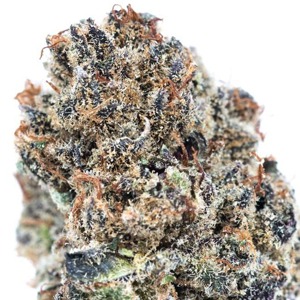Opinion: It’s About Time Arizona’s Medical Marijuana System Made Way For Recreational
By Keith Grevenitz
Medical marijuana is antiquated, even in a purple state like Arizona. Since its establishment in 2013, getting a card seemed like more of a formality than anything else. So-called “medical marijuana doctors” operate thriving businesses that use colorful, “irie” advertisements in local newspapers to lure in new customers. They’ll give a card to just about anyone. I know because I got one. Since I didn’t have an established medical history, my medical marijuana doctor suggested I go to a chiropractor and mention an old knee injury that was never treated. I went back to my medical marijuana doctor with the paperwork and she asked me, “Do you know the difference between indica and sativa?” What else was she going to do, suggest to me her favorite strain? The whole thing just seemed like some hoops that I had to jump through, and then of course there was the fee.
Well, what happens to your fee? Until now, the money has been sitting in a fund that was expected to top $80 million dollars in 2020. Sure, a small portion of the fees collected go towards expenses for the program, but the rest has been left relatively untouched. The consensus seems to be that republican lawmakers don’t want to use the discretionary funds to help the program. On the contrary, a state audit of the 2018 fiscal year determined that $962,000 was mishandled and put into other programs. The 2010 Arizona Medical Marijuana Act established the fund and dictated that “the use of fund monies must benefit the program”, but to date the fund is stagnant.
Arizona didn’t just screw the pooch on the fund. The Arizona Medical Marijuana Act was established to do a number of things, but the primary priority was protecting cardholders from prosecution. Despite the implementation of a medical marijuana program, some Arizona government officials still push anti-cannabis policy. Yavapai County Attorney Sheila Polk prosecuted an Arizona man for concentrate which he purchased at an Arizona dispensary. Rodney Jones was arrested and prosecuted for a mere half gram of “hashish” and later was convicted and sentenced to two years. For a brief period Arizona was left in a confusing haze about concentrates. With a little help from semantics, there was a movement that temporarily paralyzed dispensaries across the state. The original law was written to allow “marijuana” for medical use, but not “cannabis”. The Arizona Supreme Court made a final decision in late May of 2019 determining that concentrates, within the proper specified amounts, were legal for cardholders to possess. Rodney Jones wasn’t the only Arizona citizen to face prosecution but may be the most notable.
Most recently in August of 2020, Maricopa County instituted a policy that is simply too little too late. A new rule says that anyone arrested on simple possession charges can avoid prosecution if they obtain their medical card. If proof that a card has been obtained is provided by the initial pretrial conference hearing, charges related to the possession will be dropped. The optics of this move seem progressive and in the interest of protecting citizens’ rights to use marijuana, but at what cost? Arizona collects more fees that sit in a fund it’ll never use? What it boils down to is you can use cannabis for a price. You have to pay to play.
Arizona failed to pass recreational cannabis in 2016 by less than 70,000 votes. To put it into perspective, 1,300,344 people voted against ‘legalization” and 1,233,323 in favor. Make way, medical marijuana…recreational is coming to Arizona this year. Good riddance.
(The opinions of Keith Grevenitz do not necessarily reflect the opinion of AZ Cannabis News. If you wish to submit an opinionated article, please email info@azcannabisnews.com)

About the writer:
Keith Grevenitz graduated with bachelor’s degrees in Creative Writing and English from the University of Arizona. He is a liberal, an activist, and a knowledgeable cannabis guru who formerly worked in marketing and compassionate care. Currently, Keith is venturing into a harm reduction alcohol startup that hopes to prevent liver damage, hangovers, and other harmful effects of alcohol consumption. Interests include playing blues guitar, collecting and appreciating art, psychedelic research/legalization, the science of cannabis, and the fight for equity and justice for all mankind.


